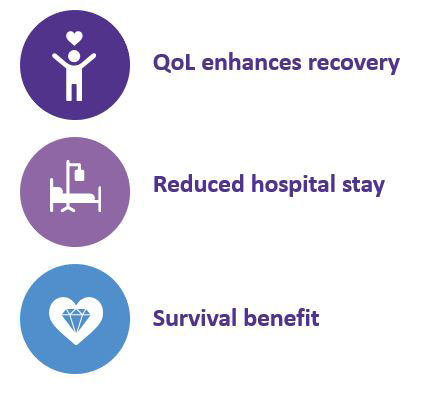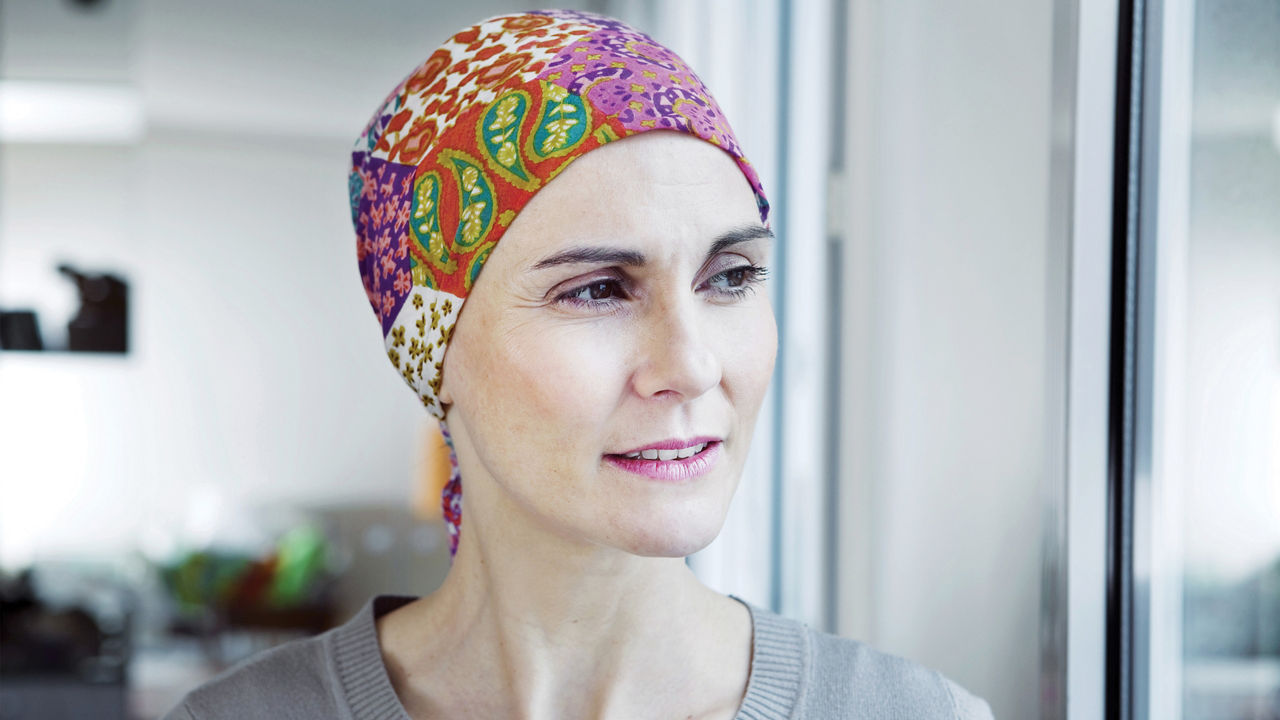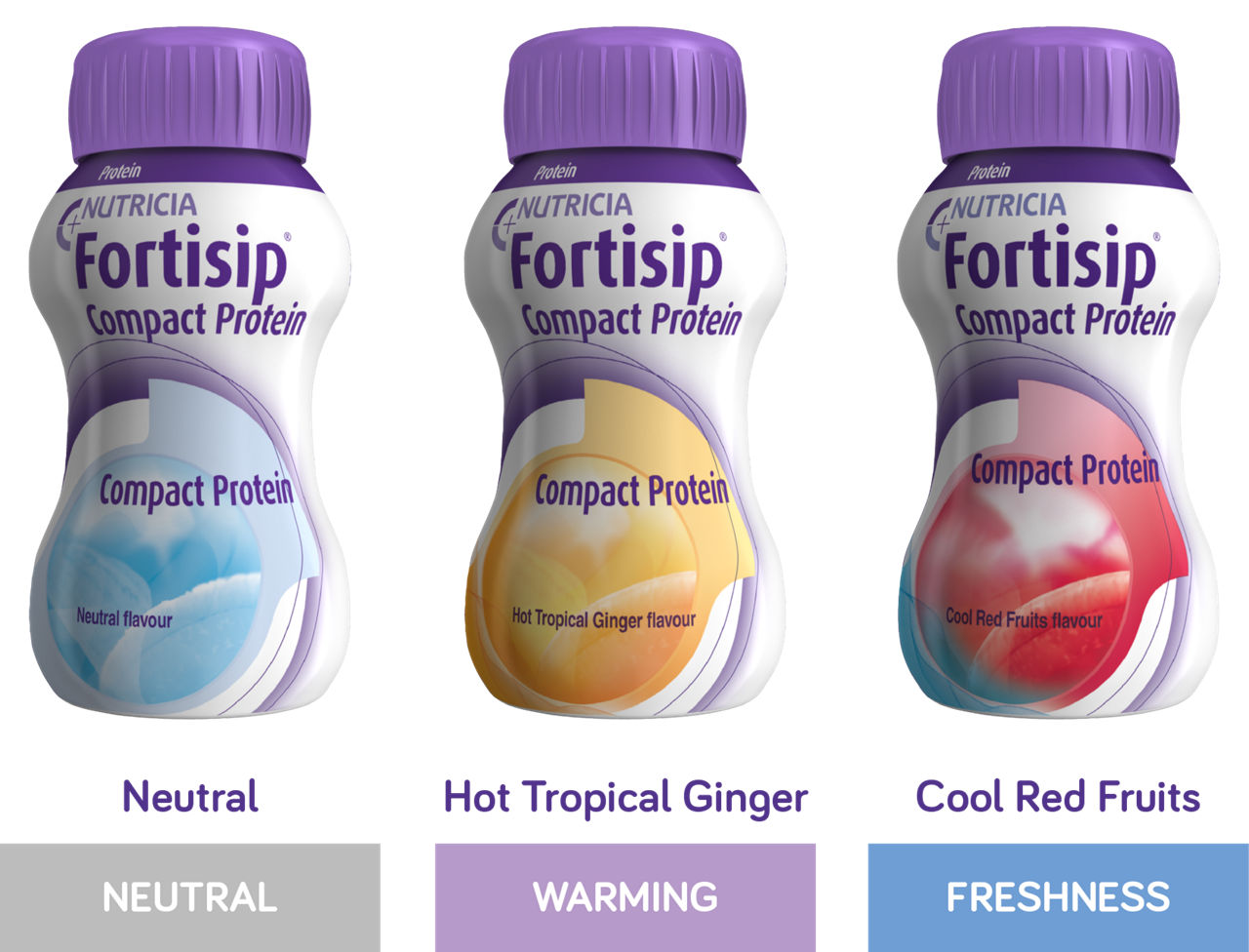Managing malnutrition in Oncology
Identification of malnutrition
Identification of malnutrition through screening is imperative, as recognised by the National Institute for Health and Care Excellence (NICE)1 and the European Society for Clinical Nutrition and Metabolism (ESPEN)2,3. Screening should be performed at the time of diagnosis.
Early nutritional intervention is key to support patient outcomes
Benefit of nutritional intervention on several quality of life aspects during treatment.4
Up to 50% reduction in post-operative complications after pre-operative ONS intervention.5,6
Up to a 3-day reduction in length of hospital stay.6
20% increase in probability of survival following early nutritional intervention and weight gain in some cancer patients.7

Oral nutritional supplements (ONS) play a role in cancer patients' journey
ESPEN (2016)2 and ESPEN (2021)3 highlight the role that nutritional intevention plays in Oncology patients.
“Nutritional interventions are recommended to increase oral intake in cancer patients who are able to eat but are malnourished or at risk of malnutrition. This includes dietary advice, the treatment of symptoms and derangements impairing food intake (nutrition impact symptoms), and offering oral nutritional supplements.”
Chemotherapy
“During intensive chemotherapy and after stem cell transplantation ESPEN recommends to maintain physical activity and to ensure adequate nutritional intake. This may require enteral and/or parenteral.” 2,3
Radiotherapy
“During radiotherapy with special attention to radiotherapy of the head and neck, thorax and gastrointestinal tract, an adequate intake should be ensured primary by, individualised nutritional counselling and/or oral nutritional supplements (ONS), in order to avoid nutritional deterioration, maintain intake and avoid radiotherapy interruptions.” 2,3nutritional care.” 2,3
Surgery
“For all cancer patients undergoing either curative or palliative surgery, ESPEN recommends management within an enhanced recovery after surgery (ERAS) program; within this program every patients should be screened for malnutrition and if deemed at risk, given additional nutritional support.” 2,3
“For those at risk of malnutrition or already malnourished, appropriate nutritional support is recommended during hospital stay and post discharge.” 3
Chemotherapy
“ESPEN recommends implementing nutritional interventions in patients with advanced cancer only after considering together with the patient the prognosis of the malignant disease and both the expected benefit on quality of life and potentially survival as well as the burden associated with nutritional care.” 2,3
Read next
- NICE. Nutrition support for adults: oral nutrition support, enteral tube feeding and parenteral nutrition. Clinical Guideline CG32. https://www.nice.org.uk/Guidance/CG32 [Accessed October 2020].
- Arends et al. Clin Nutr. 2016;36(1):11-48
- Muscaritoli, Arends, Bachmann et al. Clin Nutr. 2021; 40: 2898-2913
- Baldwin et al. J Natl Cancer Inst. 2012, 104(5): 371-385
- Kabata et al. Support Care Cancer. 2015; 23: 365-370.
- Maňásek et al. Klin Onkol. 2016; 29: 351-357.
- Trestini et al. Eur J Clin Nutr. 2018;72:772-779
- Malnutrition Pathway: A Guide to Managing Adult Malnutrition in the Community. 2017. [Online]. Available from: http://www.malnutritionpathway.co.uk/. [Accessed on: 13.01.21].





